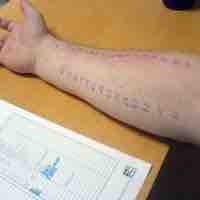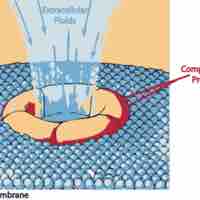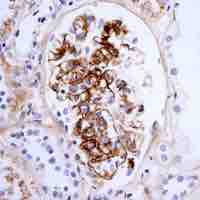Section 4
Immunity Disorders: Hypersensitivity
Book
Version 6
By Boundless
By Boundless
Boundless Microbiology
Microbiology
by Boundless
5 concepts

Type I (Anaphylactic) Reactions
Type I (or immediate/anaphylactic) hypersensitivity can be caused by the body's response to a foreign substance.

Diagnosis and Treatment of Allergy
Allergy testing can help confirm or rule out allergies, reducing adverse reactions and limiting unnecessary avoidance and medications.

Type II (Cytotoxic) Reactions
In type II (cytotoxic) hypersensitivity, the antibodies produced by the immune response bind to antigens on the patient's own cell surfaces.

Type III (Immune Complex) Reactions
Type III hypersensitivity occurs when there is little antibody and an excess of antigen, leading to the formation of small immune complexes.

Type IV (Delayed Cell-Mediated) Reactions
Type IV hypersensitivity reactions are cell-mediated and take 2 to 3 days to develop.